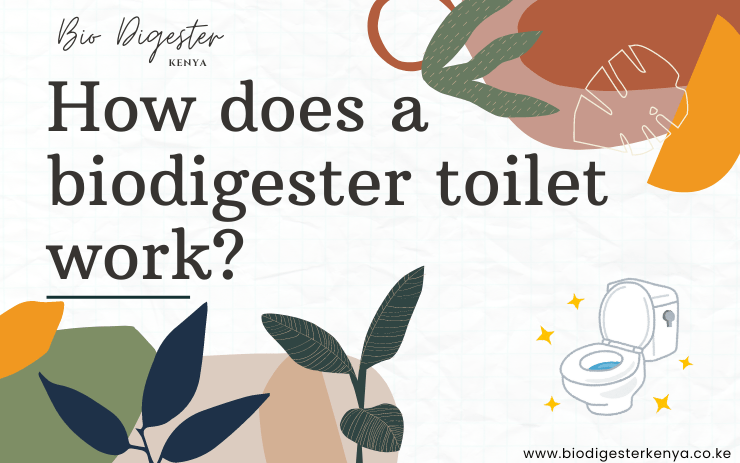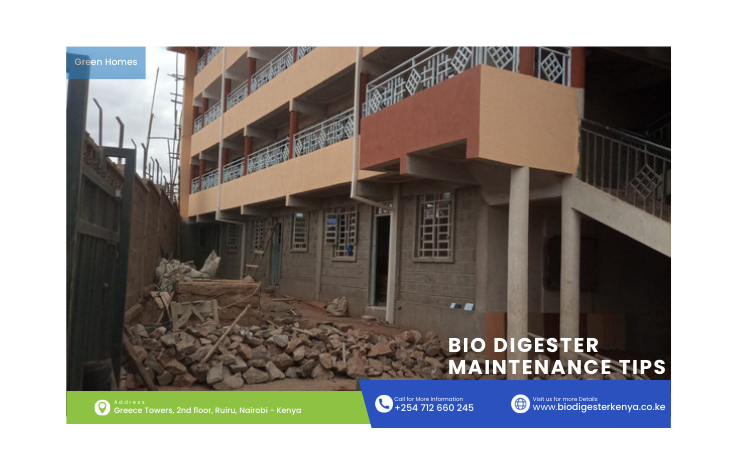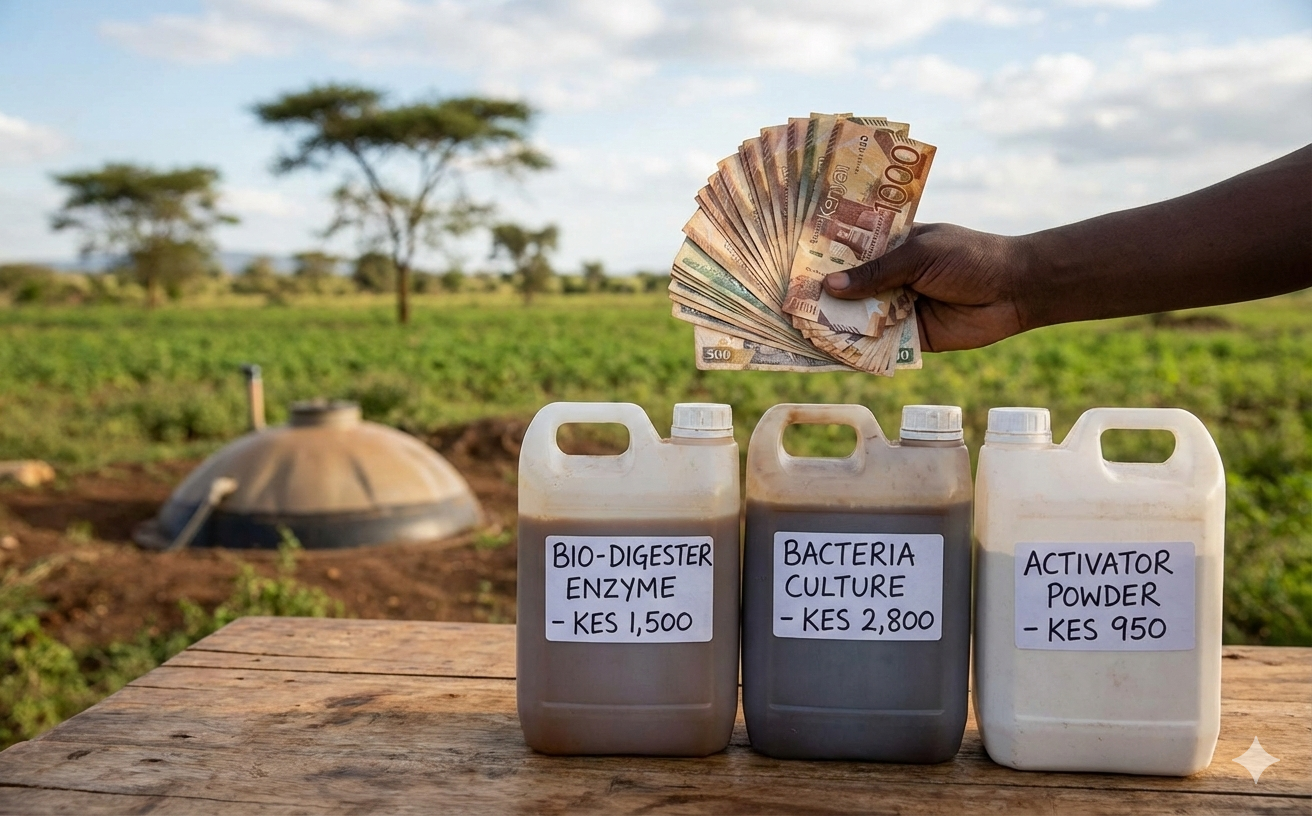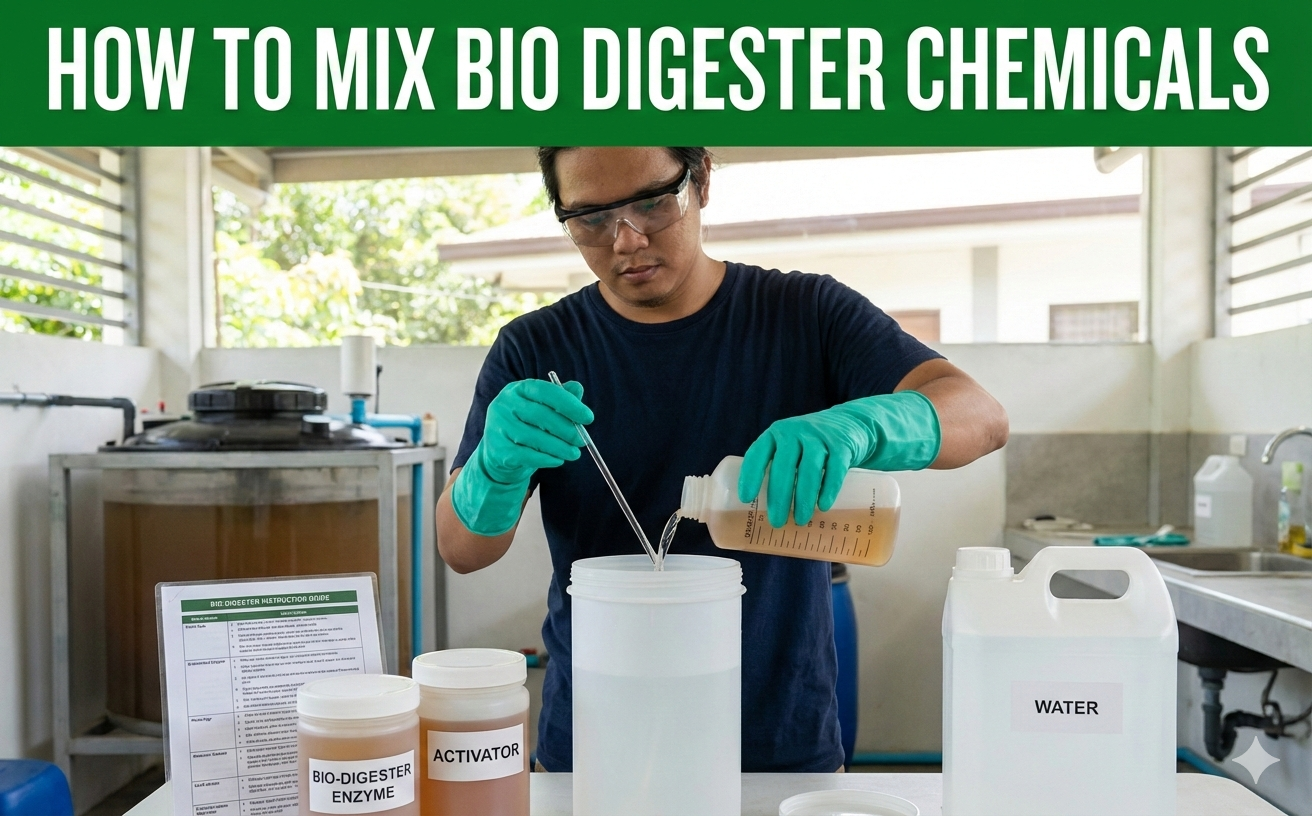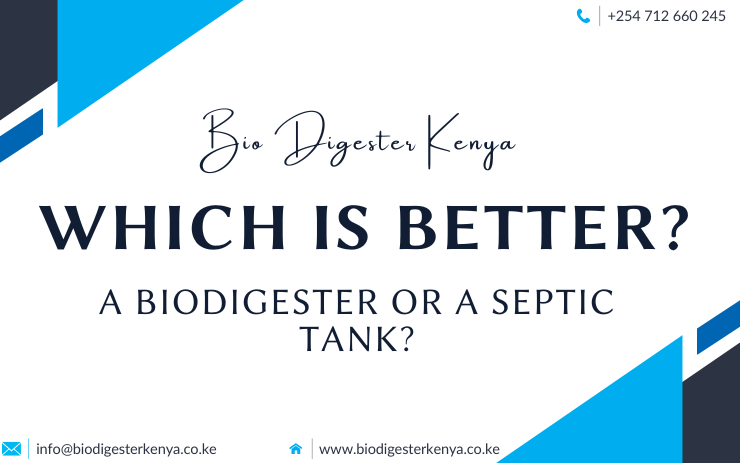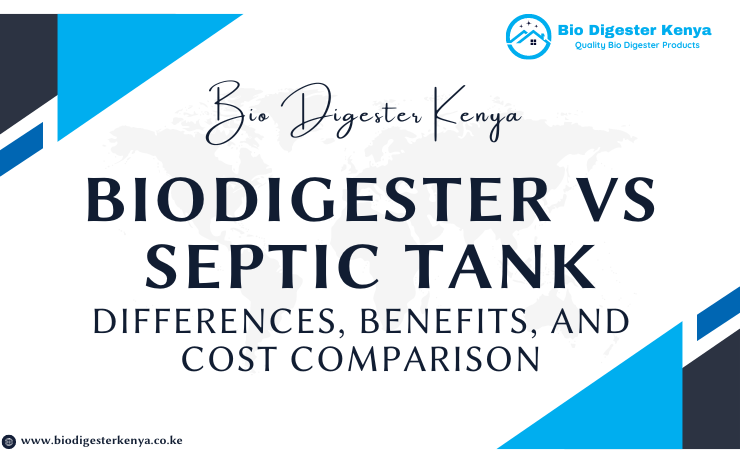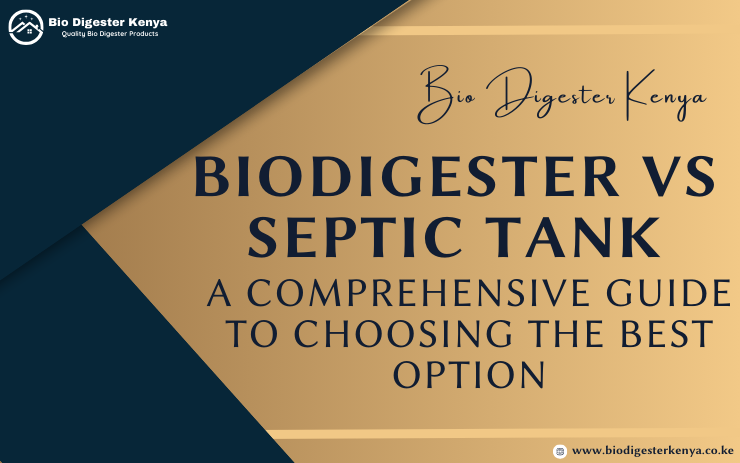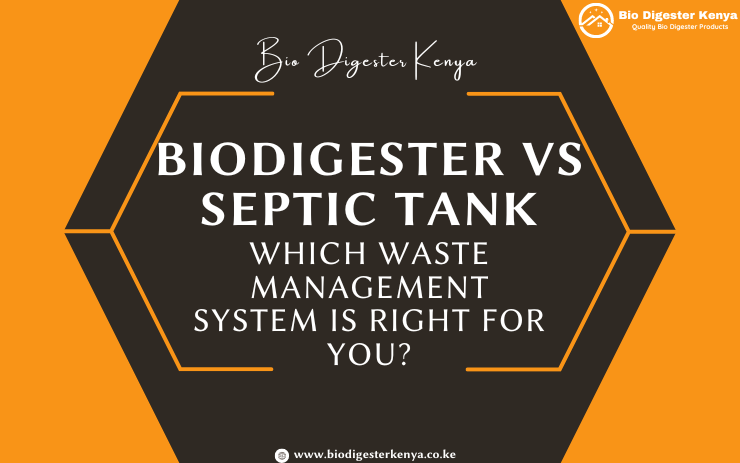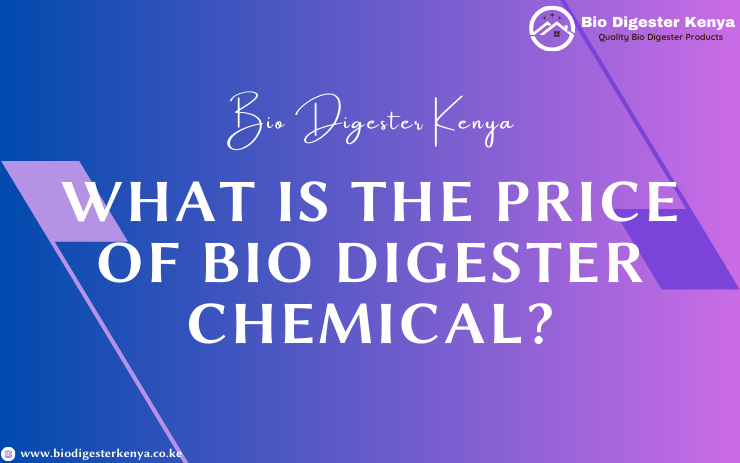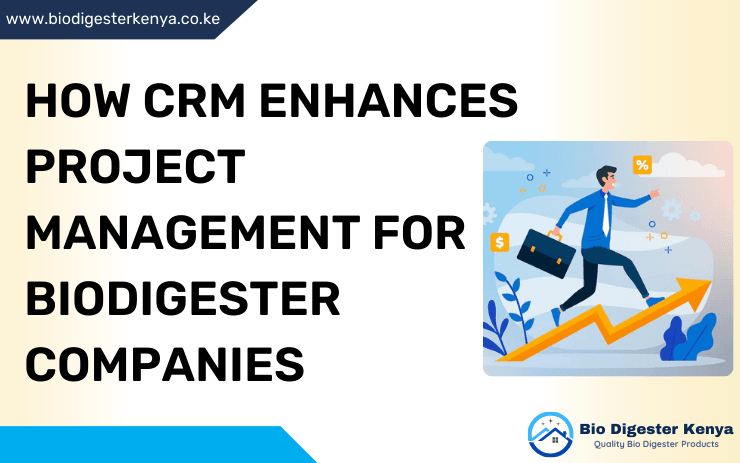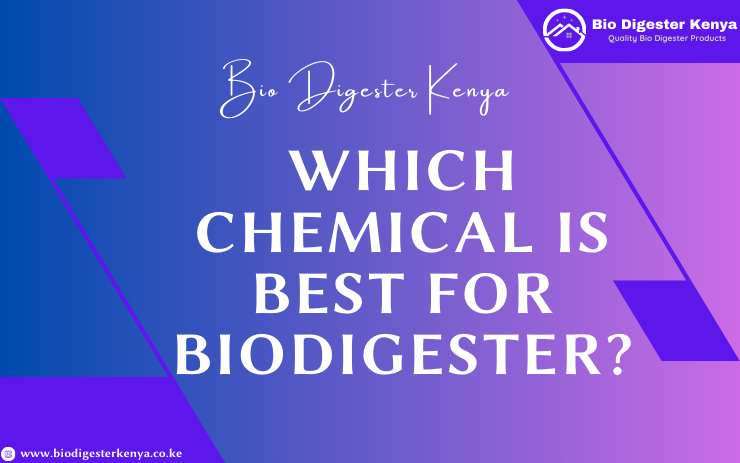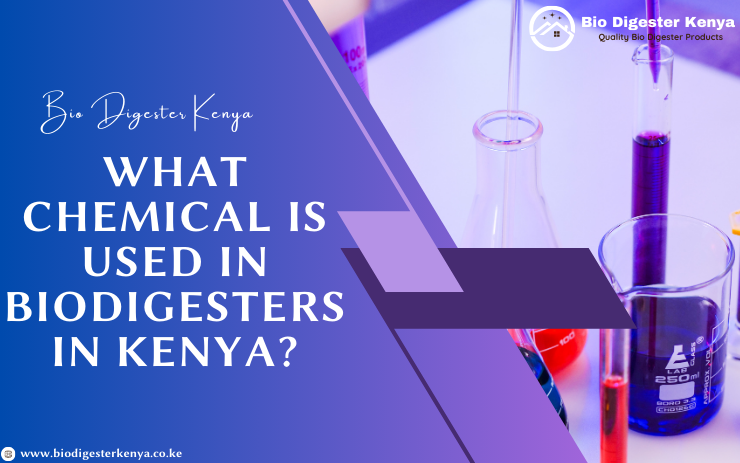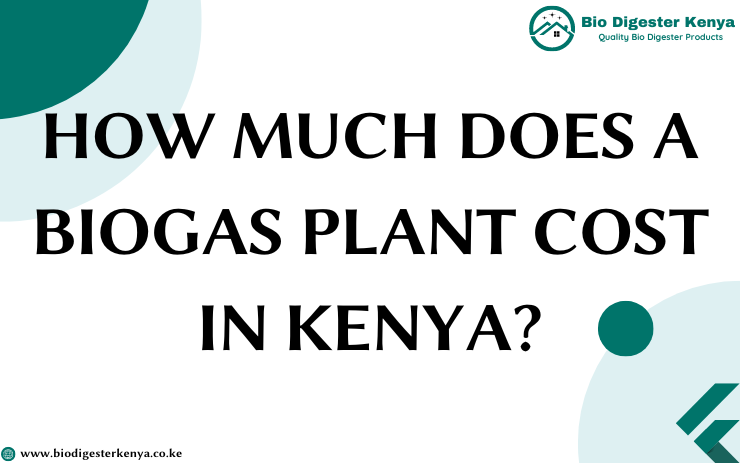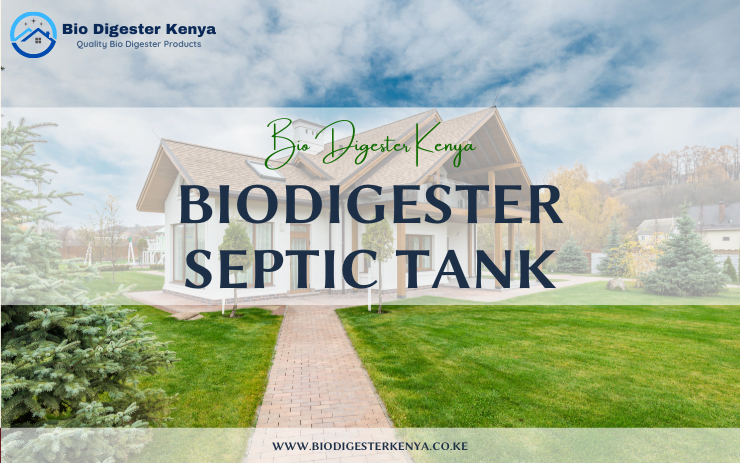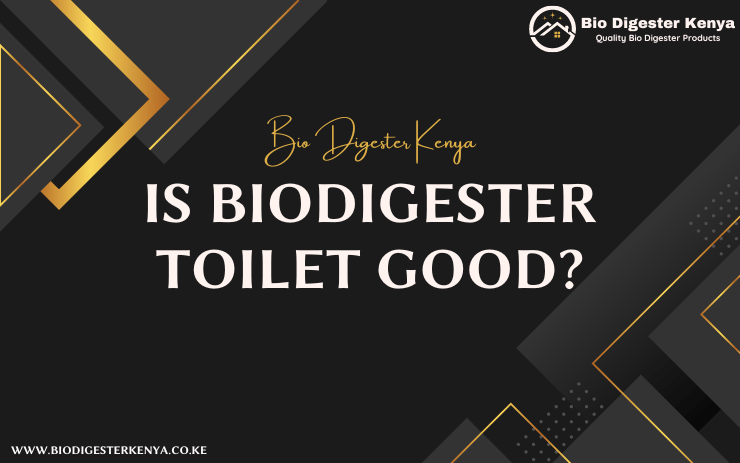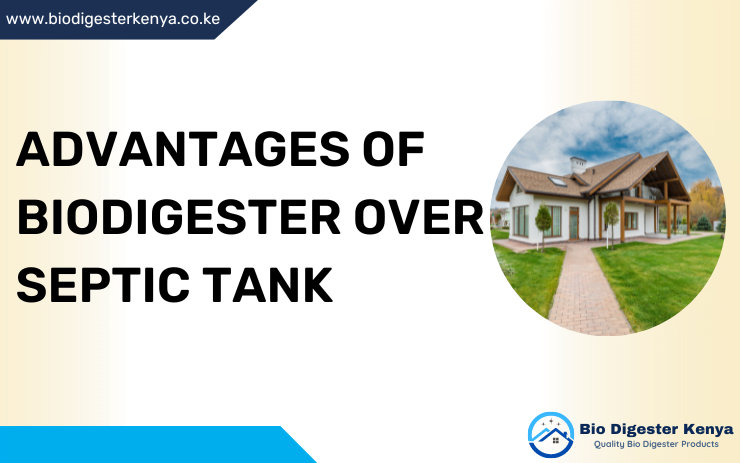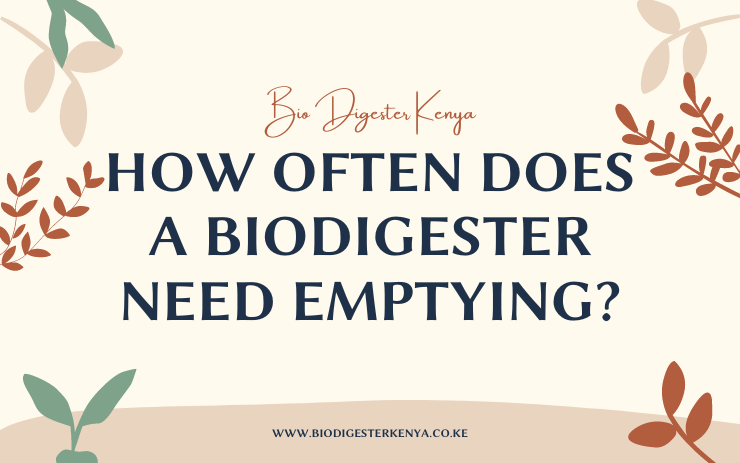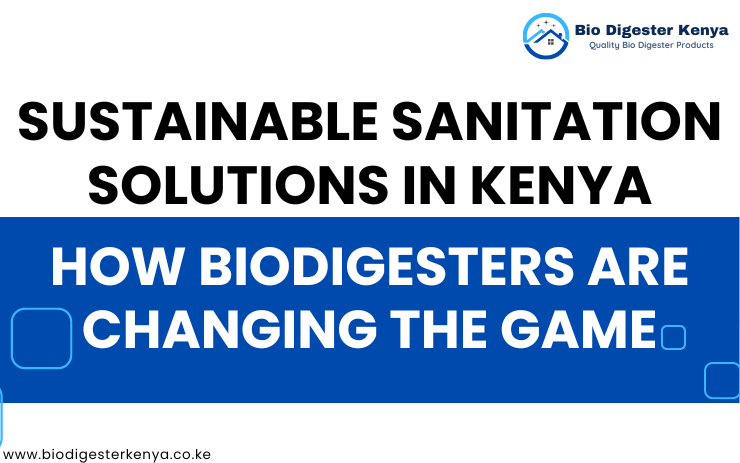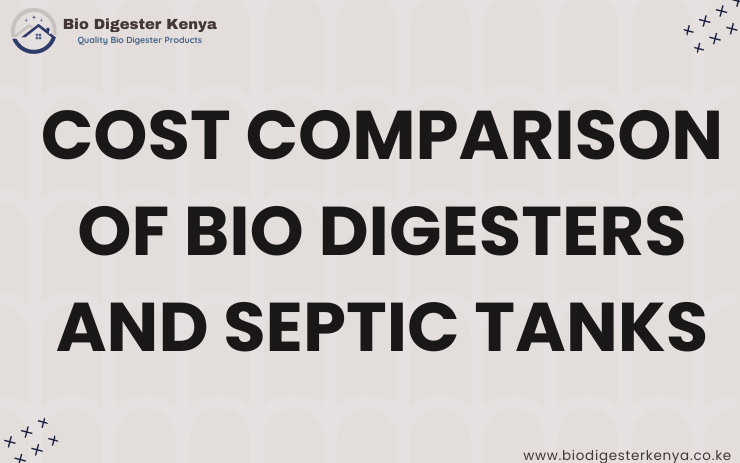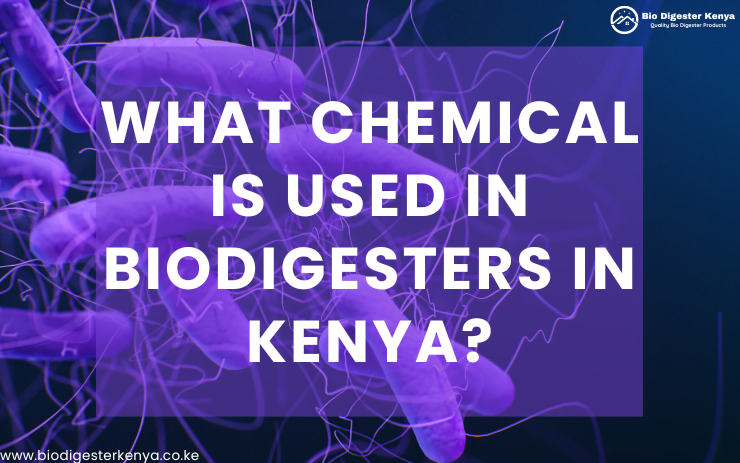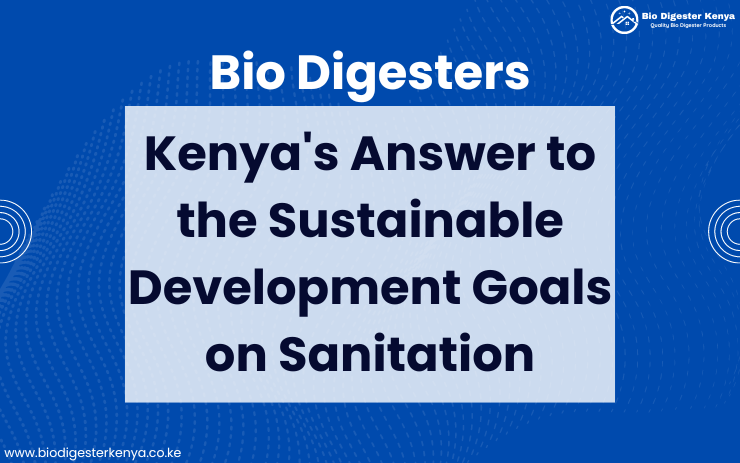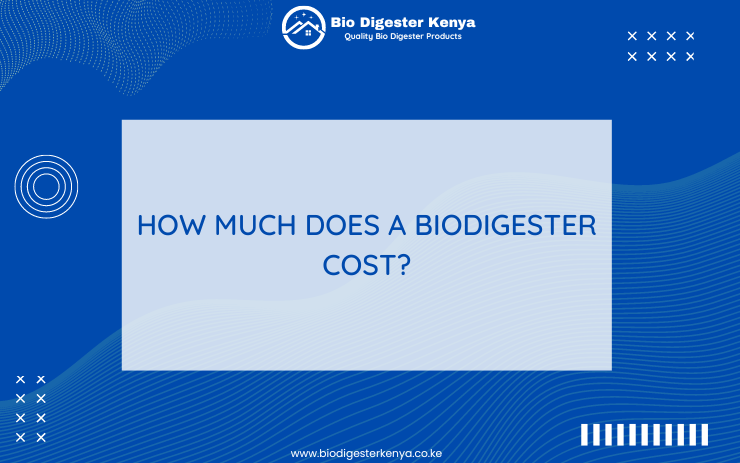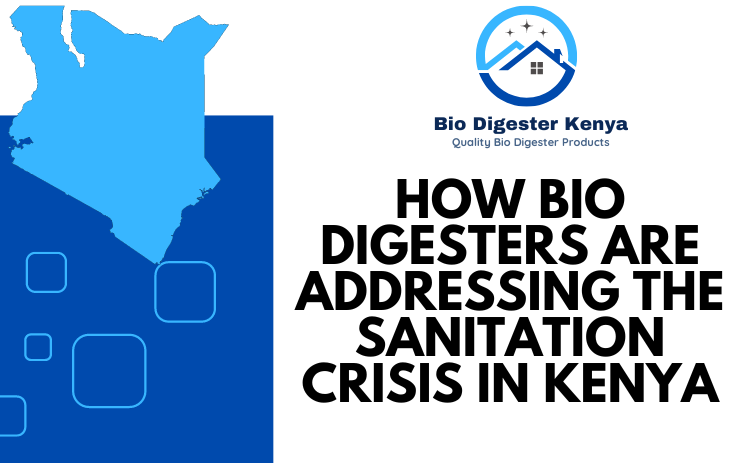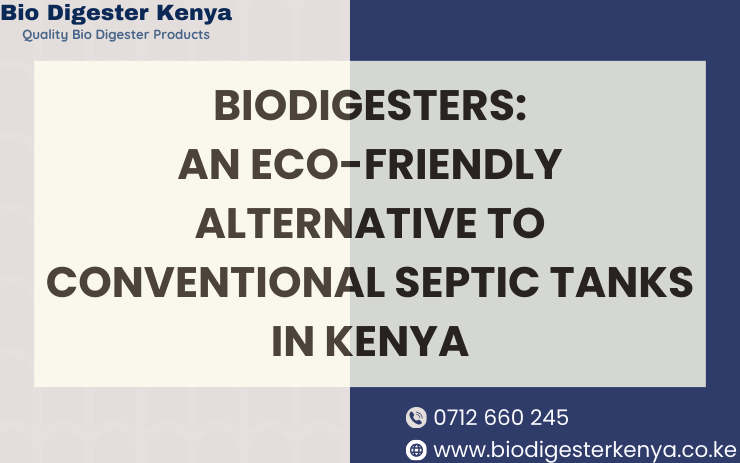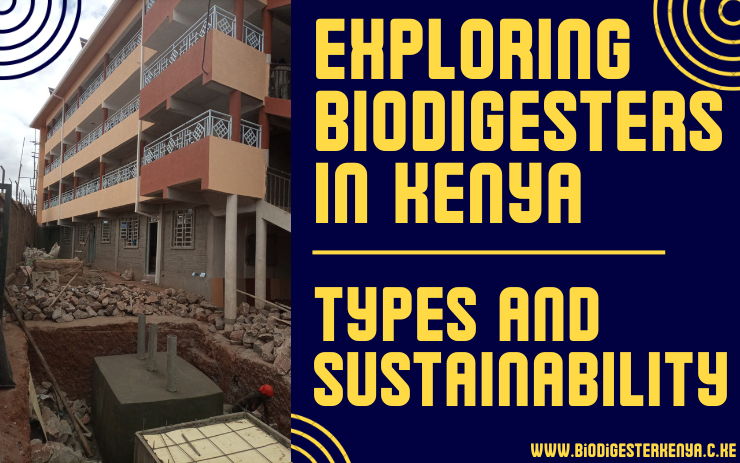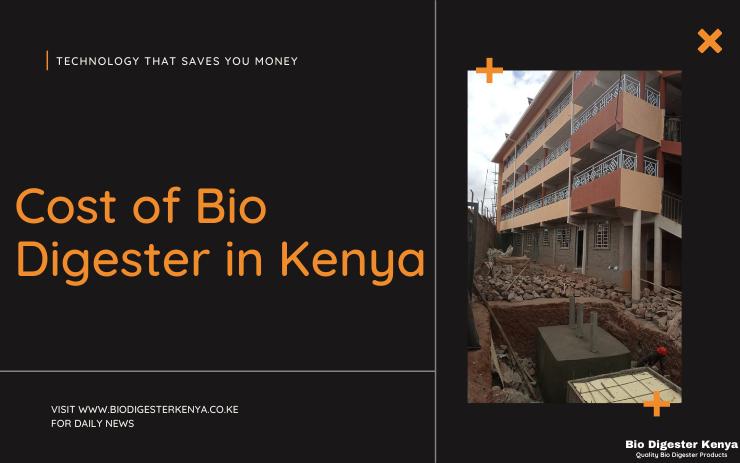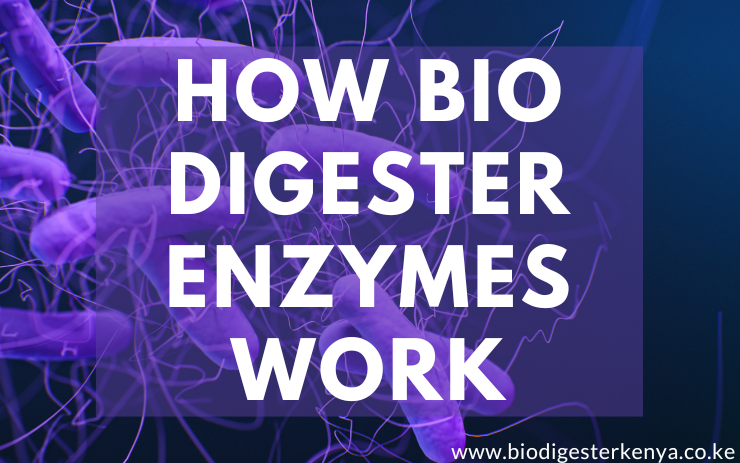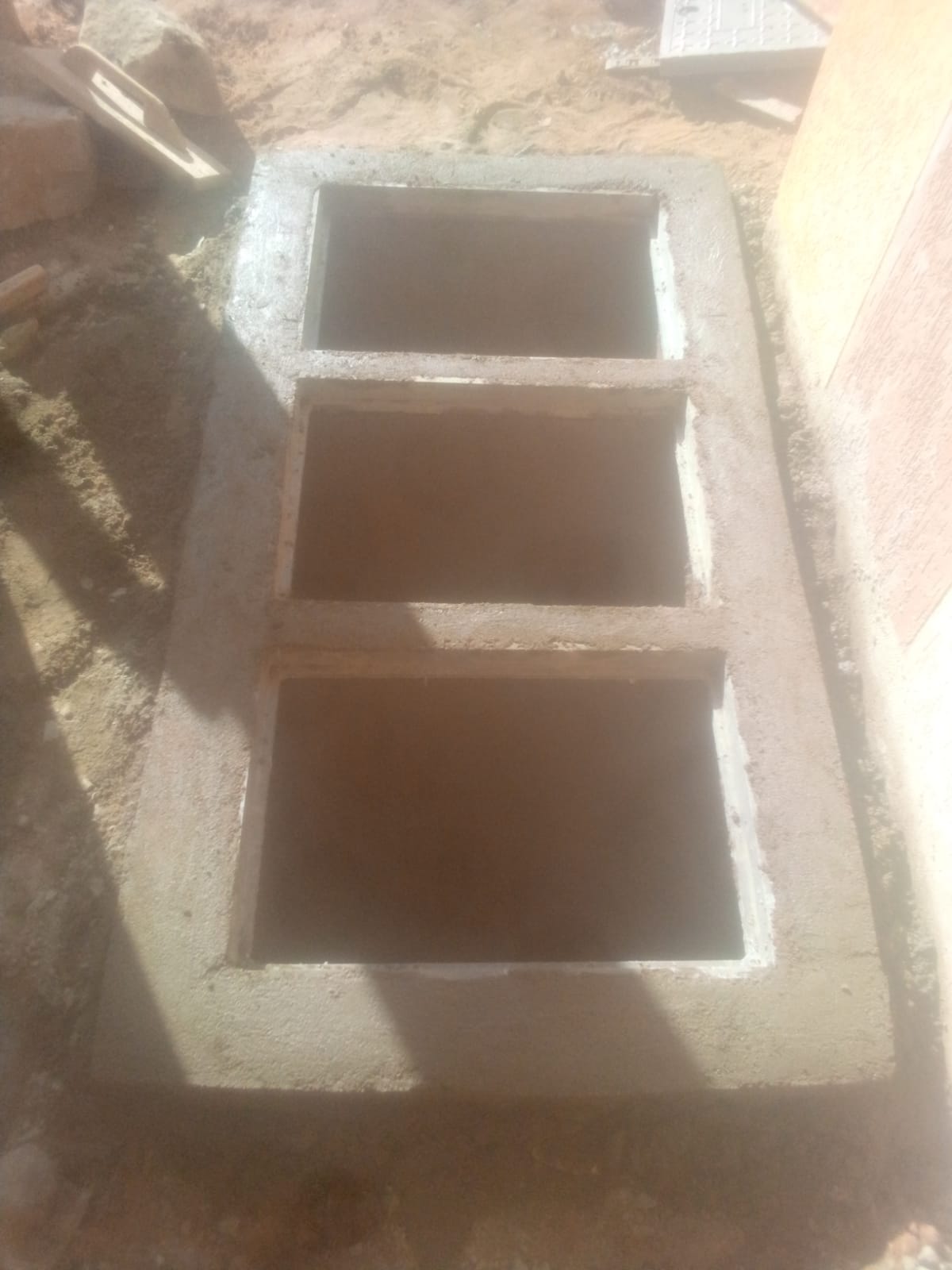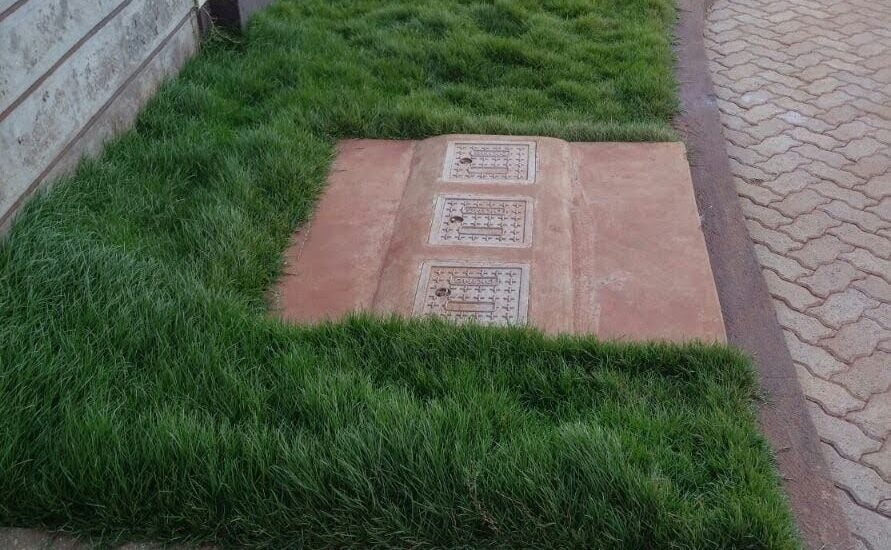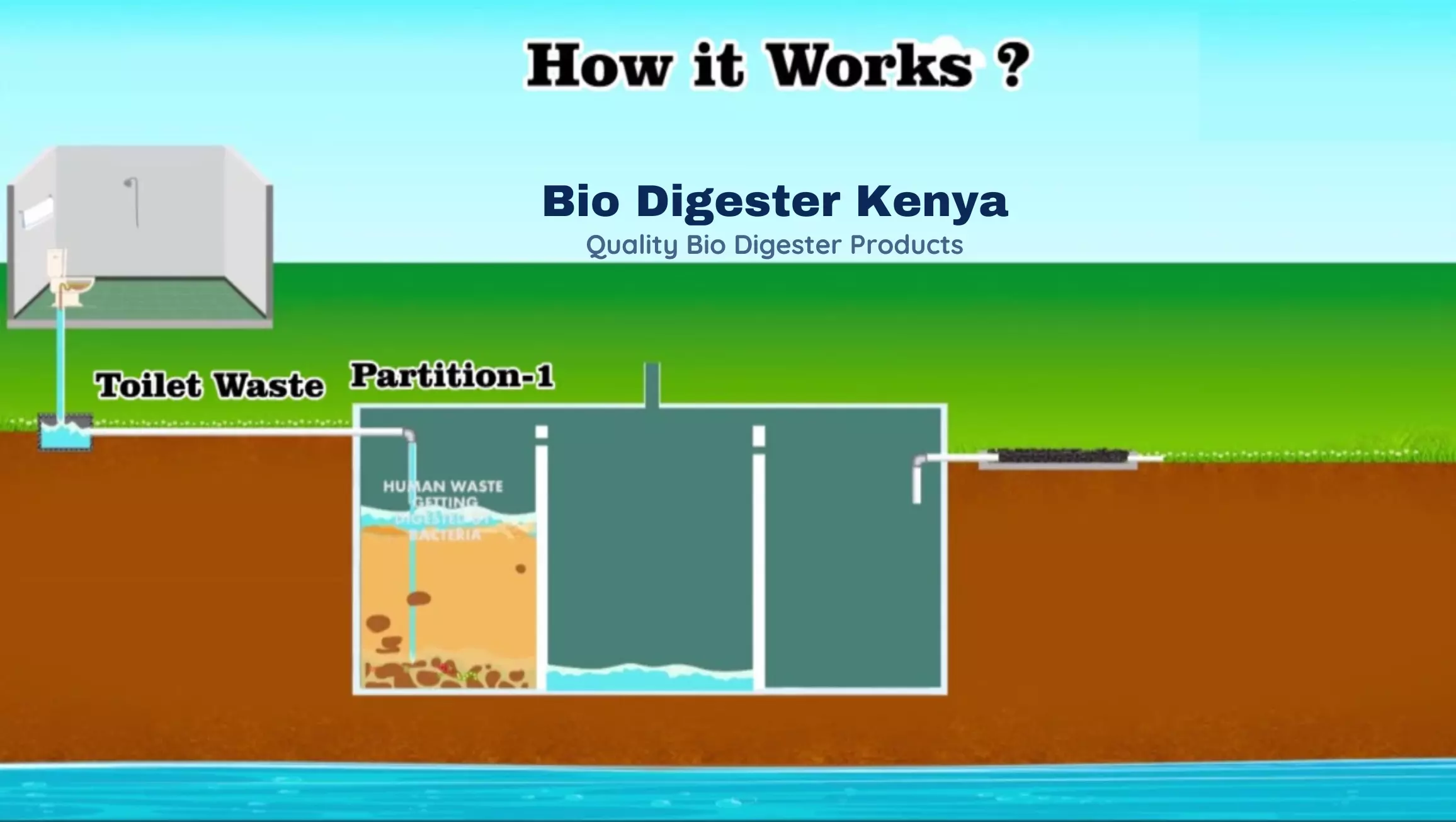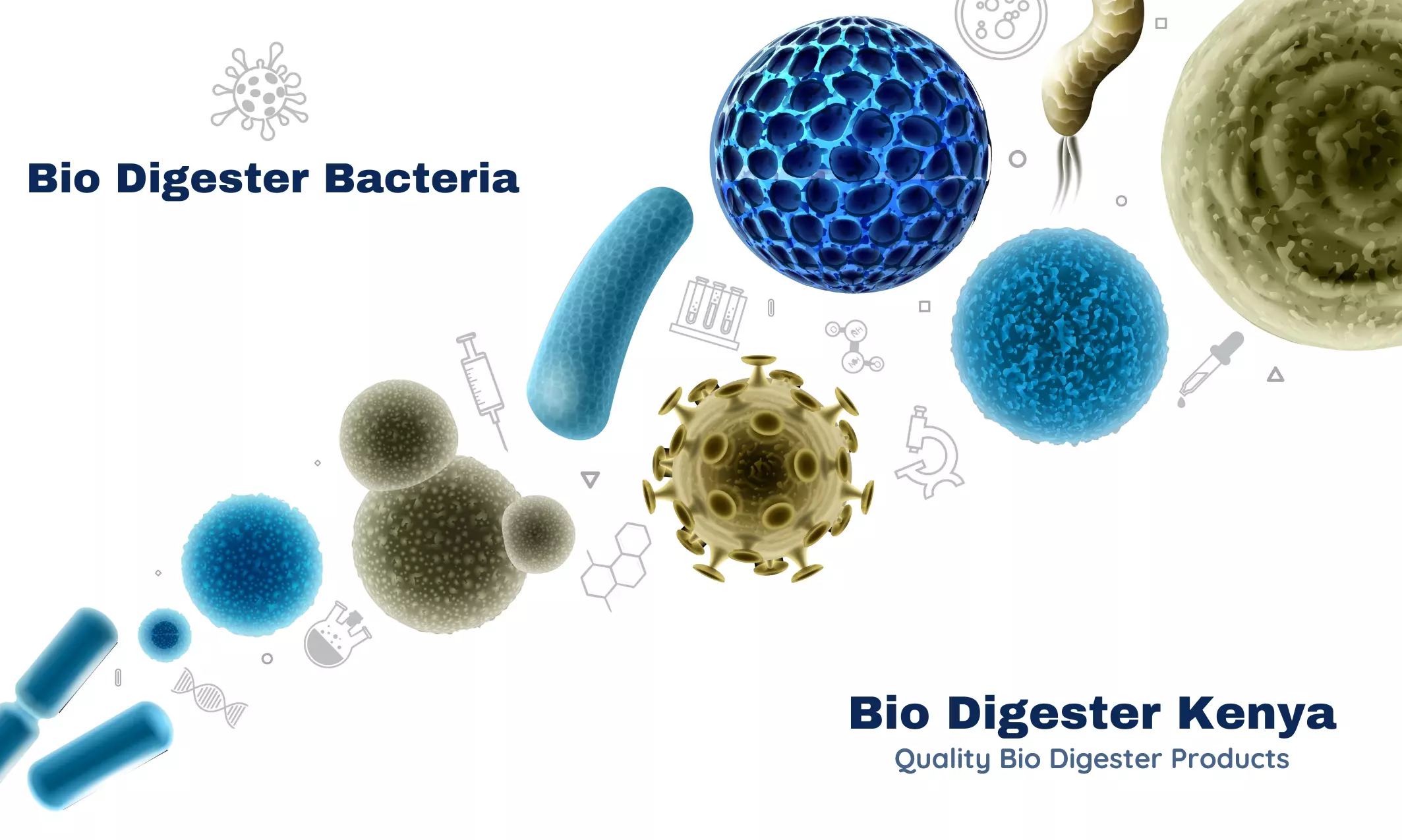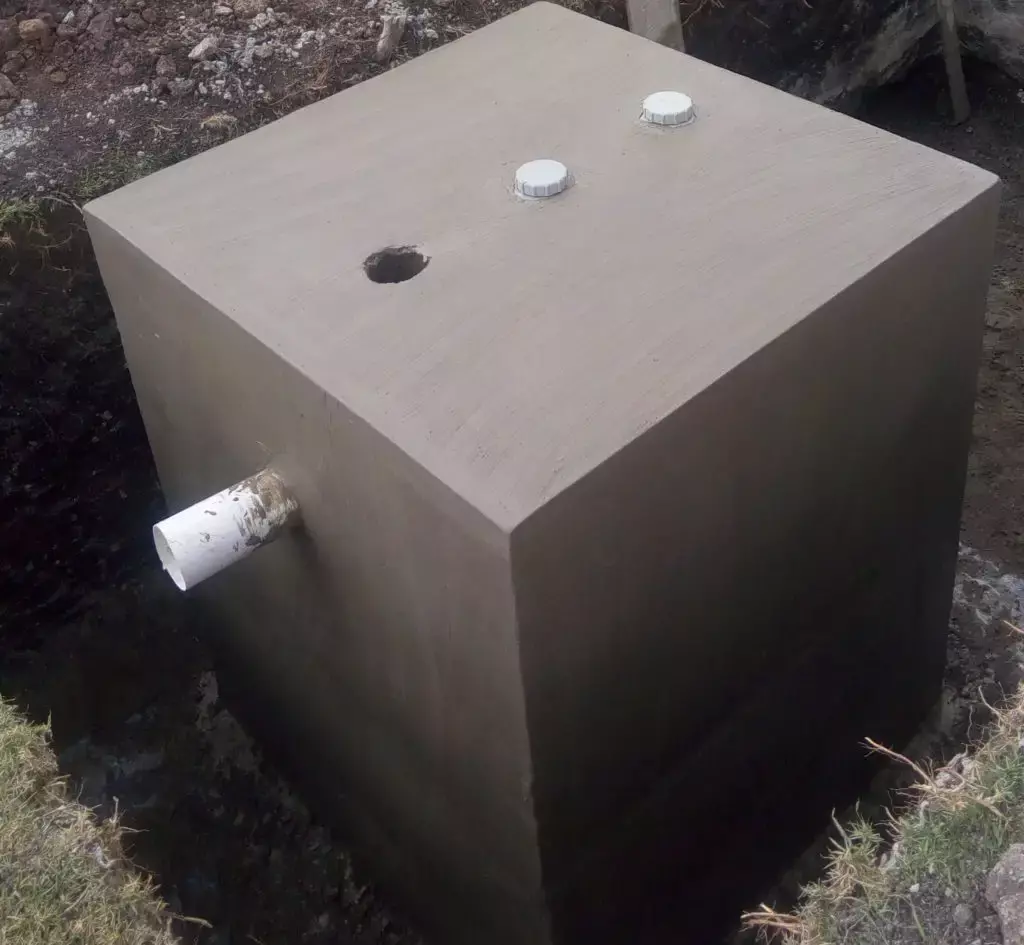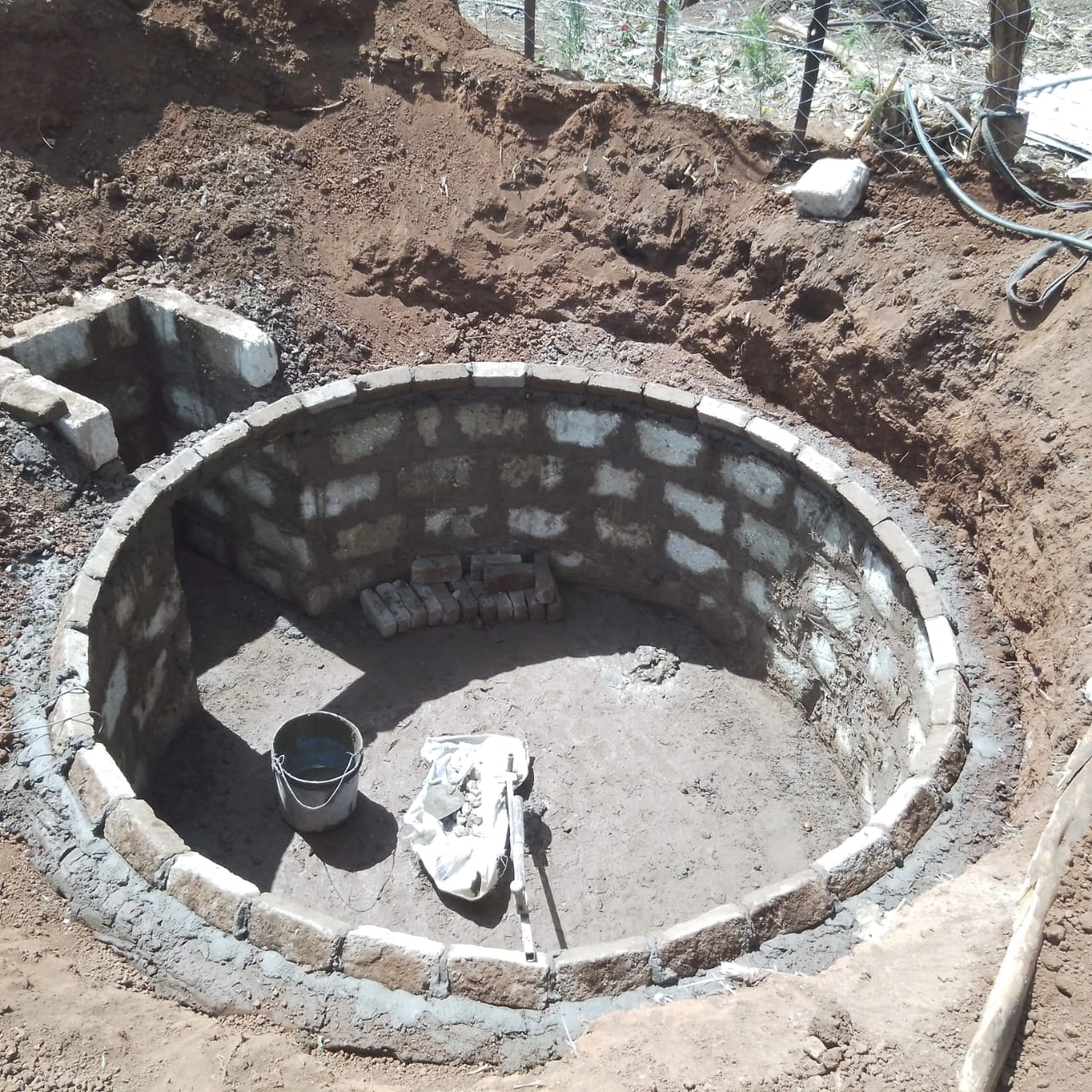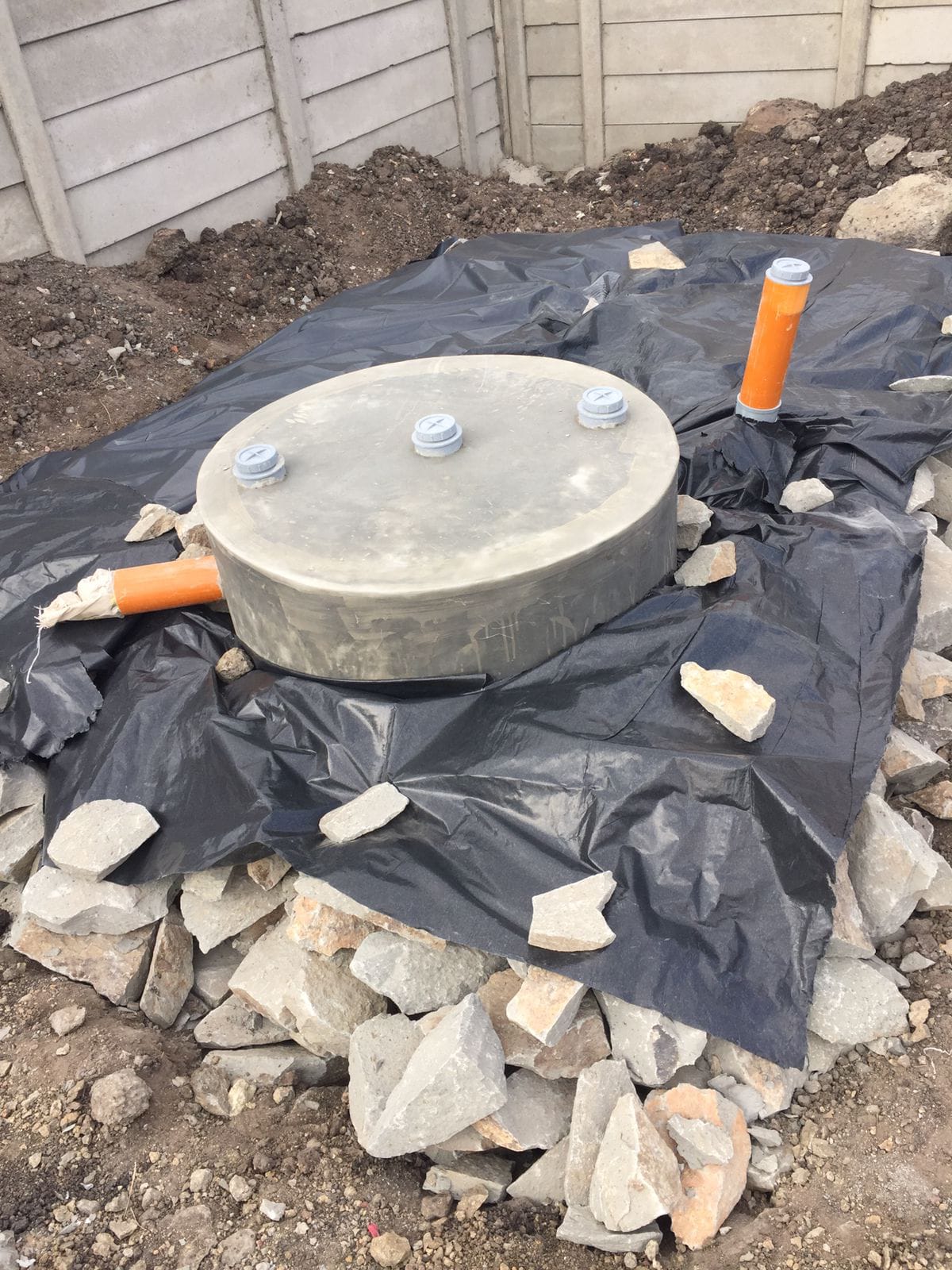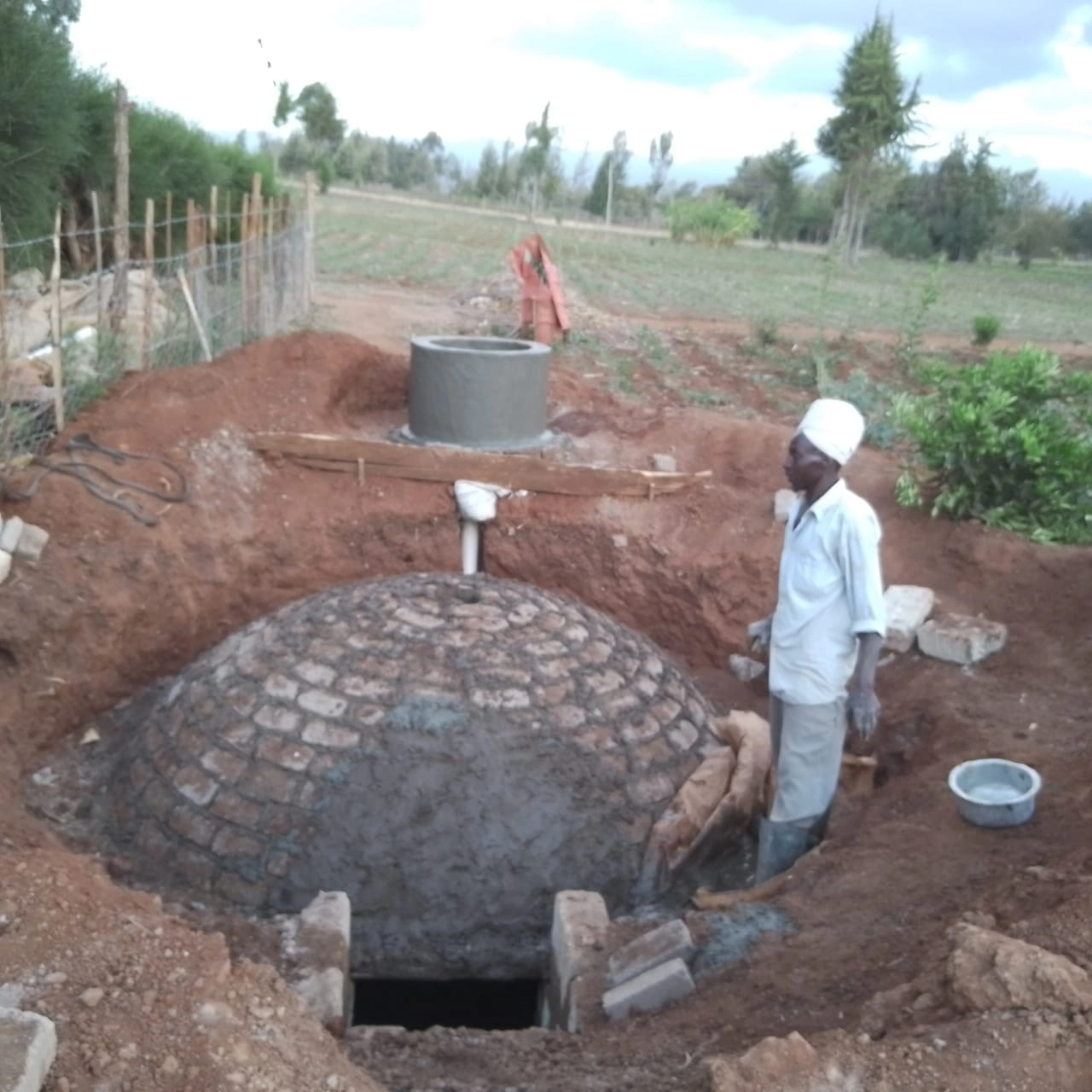Learn the differences between biodigester septic tanks and traditional septic tanks, and discover why Bio Digester Kenya offers the best eco-friendly waste management solution for homes and businesses in Kenya.
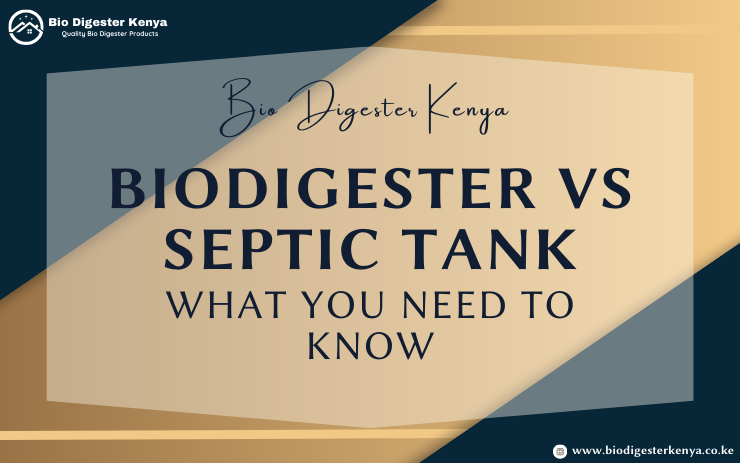
Introduction
If you’re deciding between a biodigester septic tank and a traditional septic tank, you’re probably wondering which option is better for your home or business.
Waste management is a crucial part of keeping your property healthy and sustainable, especially in places like Kenya, where environmental concerns and water conservation play a significant role.
At Bio Digester Kenya, we specialize in biodigester systems that transform waste into water and air, offering a cleaner, eco-friendly alternative to traditional septic tanks.
Let’s dive deeper into the differences, benefits, and potential drawbacks of biodigesters and septic tanks, helping you make the right choice for your property.
What is a Biodigester?
A biodigester is a waste management system that relies on natural enzymes and bacteria to break down human waste.
The system works by piping waste into a sealed tank, where biodigester enzymes convert the waste into water and air.
The water is then directed to a soaking area, where it is absorbed by the ground, leaving no foul odors or harmful byproducts.
At Bio Digester Kenya, we design and install biodigesters specifically tailored to Kenya’s environment.
Whether you’re in a residential home or a commercial building, this system provides a sustainable, low-maintenance solution.
What is a Septic Tank?
A septic tank, on the other hand, is a more traditional waste management system.
Waste is collected in a large, underground tank where solids settle at the bottom and liquids flow into a leach field.
While the technology is reliable and has been in use for many years, septic tanks require regular pumping and maintenance to prevent clogs, odors, and potential environmental contamination.
Septic tanks also require a lot of space, which may not be feasible for everyone, especially in urban areas or smaller properties.
Key Differences Between Biodigester and Septic Tank
When comparing a biodigester septic tank with a traditional septic tank, several key differences stand out:
- Technology: Biodigesters rely on enzymes to break down waste, while septic tanks use gravity to separate solids and liquids.
- Space: Biodigesters are compact and perfect for urban settings, whereas septic tanks need a large area for the tank and leach field.
- Maintenance: Biodigesters need minimal upkeep (just occasional enzyme replenishment), while septic tanks require regular pumping and leach field care.
How Biodigesters Work
Biodigesters use specialized biodigester enzymes to break down waste into simple compounds: water and air.
As the waste enters the system, the enzymes digest the solid waste, and the liquid byproduct is safely absorbed by the ground.
This process ensures no harmful substances are released into the environment.
Best of all, biodigesters are odor-free and require very little intervention.
How Septic Tanks Work
A septic tank separates waste into two categories: solids, which settle at the bottom, and liquids, which move into a leach field.
Over time, the solids build up and must be pumped out to prevent clogging.
Without regular maintenance, septic tanks can overflow or cause the leach field to fail, leading to environmental hazards.
Biodigesters
Pros of Biodigesters
- Eco-Friendly: Biodigesters convert waste into water and air, making them much gentler on the environment compared to septic tanks.
- Minimal Maintenance: Once installed, biodigesters only need enzyme replenishment, which is easy to manage.
- No Odors: The sealed system ensures that odors are contained, making biodigesters ideal for homes and businesses alike.
- Compact: Biodigesters are designed to fit in small spaces, making them perfect for urban areas or properties with limited land.
Cons of Biodigesters
- Initial Installation Cost: Biodigesters tend to have a higher upfront cost compared to septic tanks, but the long-term savings on maintenance and repairs can offset this.
- Enzyme Replenishment: Biodigesters rely on enzymes to function, which means you’ll need to buy them regularly (available through Bio Digester Kenya).
- Installation Expertise: Installing a biodigester requires specific expertise, which is why choosing a professional like Bio Digester Kenya is essential.
Septic Tanks
Pros of Septic Tanks
- Lower Initial Setup Cost: Septic tanks can be less expensive to install initially, especially for large properties.
- Familiar Technology: Septic tanks are well-known and widely used, making them a familiar option for many homeowners.
- Works Well on Large Properties: For rural areas with plenty of space, septic tanks can still be a viable choice.
Cons of Septic Tanks
- Frequent Maintenance: Septic tanks need regular pumping to avoid clogs and backups, which can be costly over time.
- Environmental Risks: If not maintained, septic tanks can leak and contaminate the soil and groundwater.
- Odors and Space: Septic tanks can produce unpleasant smells, especially if they’re not regularly maintained, and they require a large leach field, which may not be suitable for all properties.
Why Biodigesters are Ideal for Kenyan Homes
Cost Comparison: Biodigester vs Septic Tank
While biodigesters may have a higher upfront cost, the savings you’ll enjoy over time make them a more cost-effective solution. With minimal maintenance and no need for regular pumping, biodigesters can save you money in the long run. Septic tanks, on the other hand, come with hidden costs—such as the frequent need for pumping and repairs.Maintaining Your Biodigester
Maintaining a biodigester is simple.
The most important step is adding biodigester enzymes every few months to keep the system running smoothly.
These enzymes break down waste efficiently, ensuring your system continues to function at its best.
You can buy these enzymes directly from Bio Digester Kenya, and we’ll even provide you with guidance on how to use them.
Bio Digester Kenya: Leading Waste Management Solutions
At Bio Digester Kenya, we specialize in designing and installing biodigesters that meet Kenya’s specific needs.
Whether you’re a homeowner looking for a sustainable waste management solution or a business owner seeking an eco-friendly system, our team is here to help.
We pride ourselves on offering the highest quality systems and the best customer service.
Our expert team handles everything—from design and installation to maintenance and enzyme supply.
Let us help you make the switch to a cleaner, more efficient waste management system today.
Conclusion
When comparing biodigester septic tanks and traditional septic tanks, it’s clear that biodigesters are the smarter, more sustainable option.
With their low maintenance, eco-friendly design, and suitability for a wide range of properties, biodigesters are the future of waste management.
If you’re ready to upgrade your waste management system, Bio Digester Kenya is here to help.
Contact us today to learn more about our services, and let us design and install the perfect system for your home or business.
FAQs
What is the lifespan of a biodigester? Biodigesters can last for decades with proper maintenance, outlasting many traditional septic tanks.
How often should I add biodigester enzymes? You should add enzymes every 3 to 6 months to ensure your biodigester continues to function efficiently.
Is a biodigester system suitable for commercial properties? Yes, biodigesters are ideal for both residential and commercial properties, offering an eco-friendly waste management solution.
What are the main maintenance requirements for biodigesters? The primary maintenance task is adding biodigester enzymes periodically to keep the system working effectively.
How do I know if a biodigester is right for my property? Biodigesters are a great option for properties of all sizes, particularly if you’re looking for a low-maintenance, environmentally friendly solution.

